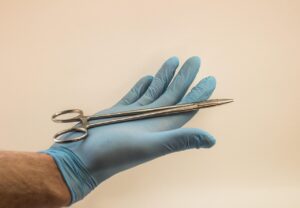In the evolving landscape of healthcare, primary care providers (PCPs) play an essential role in addressing a variety of medical concerns, including minor surgical procedures. These procedures, often performed in a primary care clinic setting, are designed to be quick, effective, and minimally invasive. With advancements in medical technology and training, primary care for minor surgery has become a convenient option for many patients.

Minor Surgery in Primary Care
Minor surgical procedures are performed in an outpatient setting, typically in a physician’s office, and require local anesthesia. These procedures are less complex than major surgeries and involve minimal risk.
Benefits of Minor Surgery in Primary Care:
- Convenience: Patients can receive care in a familiar and comfortable setting.
- Cost-Effectiveness: Minor procedures in primary care are often more affordable than those performed in hospitals or surgical centers.
- Continuity of Care: PCPs have a comprehensive understanding of their patients’ medical history, ensuring personalized care.
- Reduced Wait Times: Patients can often schedule minor procedures more quickly in a primary care setting.
- Familiarity: Patients feel more at ease with their trusted PCP performing the procedure.
Types of Minor Surgical Procedures Performed by PCPs:
- Skin Procedures:
- Mole Removal: Excision of benign or suspicious moles.
- Lipoma Removal: Excision of fatty tumors beneath the skin.
- Cyst Removal: Excision of fluid-filled sacs.
- Wart Removal: Cryotherapy, excision, or curettage of warts.
- Laceration Repair: Suturing of cuts and wounds.
- Abscess Drainage: Incision and drainage of skin abscesses.
- Nail Procedures:
- Ingrown Toenail Removal: Partial or complete removal of ingrown toenails.
- Nail Bed Repair: Repair of damaged nail beds.
- Other Procedures:
- Foreign Body Removal: Removal of splinters, glass, or other foreign objects.
- Joint Injections: Injection of corticosteroids or other medications into joints for pain relief.
- Biopsies: Collection of tissue samples for diagnostic purposes.

Pre-Surgery Instructions
Depending on the type of surgery, patients may be advised to:
- Avoid certain medications (e.g., blood thinners)
- Follow hygiene protocols (such as cleansing the surgical area)
- Arrange for post-procedure care and transportation if needed
Post-Surgical Care and Recovery
Immediate Aftercare
Patients are advised to:
- Keep the wound clean and dry.
- Take prescribed medications (such as antibiotics or pain relievers).
- Watch for signs of infection or complications (redness, swelling, discharge).
Follow-Up Visits
A follow-up visit ensures proper healing and suture removal if necessary. The PCP will also assess for any delayed complications and provide further medical advice.
When to Seek Specialized Care
While primary care physicians handle a variety of minor surgical procedures, certain cases require referral to a specialist. These include:
- Deep wounds or large lacerations needing advanced surgical intervention.
- Complicated cysts or abscesses that require drainage beyond minor surgical capabilities.
- Severe infections needing hospital-based care.
- Chronic or recurring issues requiring specialist evaluation (e.g., recurring skin growths).
FAQs
1. Is minor surgery in a primary care clinic safe?
Yes! These procedures are performed under sterile conditions using proper medical protocols, ensuring safety and effectiveness.
2. Does minor surgery require anesthesia?
Most minor surgeries use local anesthesia, ensuring a pain-free experience while allowing patients to remain fully conscious.
3. How long does a minor surgical procedure take?
Most procedures take 15 to 45 minutes, depending on complexity.
4. What are the risks of minor surgery in primary care?
While rare, possible risks include infection, bleeding, or scarring, which are minimized with proper post-care and sterile techniques.
5. Will my insurance cover minor surgery at a primary care clinic?
Many insurance plans cover minor surgical procedures if deemed medically necessary. It’s best to check with your insurance provider.
6. How do I know if I need minor surgery?
If you have persistent skin growths, wounds, infections, or joint pain, consult your primary care provider to discuss treatment options.
Conclusion
Primary care providers play a vital role in offering safe, effective, and accessible minor surgical procedures. Whether it’s removing a cyst, suturing a wound, or performing a biopsy, your PCP ensures comprehensive care with minimal downtime.
If you’re experiencing a condition that may require minor surgery, schedule a consultation with our primary care provider to discuss your options (432) 322-8675 or (432) 322-8676 or visit us https://sccodessa.com/
